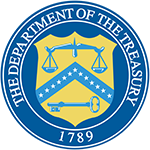Agenda
ACI’s highly anticipated Proficiency Series provides true immersion in Economic Sanctions with the objective of becoming proficient in four weeks.
MODULE 1
March 4, 2025 • 1:30–4:30pm EST
Your U.S. Economic Sanctions Roadmap: Key Concepts, Agencies, Jurisdictions and Roles
During this practical opening session, expert instructors will take you through the key agencies involved in U.S. sanctions implementation and enforcement and the evolving framework of U.S. Secondary Sanctions and Human Rights-related actions including:
Basics of sanctions law: e.g., TWEA, IEEPA, Executive Orders, and Designations
- Introduction to OFAC, BIS, DOJ, State Department, Congress and how they work together
- U.S. Sanctions Jurisdiction: Extra-Territoriality » What are Primary, Sectoral, and Secondary Sanctions?
Introduction to OFAC’s 50% Rule
- Key Licenses and Exemptions
- Sources of Guidance: Alerts, FAQs, and Enforcement Actions
- Intersection of Economic Sanctions, Export Controls and ore National Security Areas
Secondary Sanctions
- Scope: Menu-based versus Designations
- Application in Practice
- Financial Institution Considerations
Human Rights and Supply Chain Considerations
- Sanctions in Context: Import Controls, Export Controls, and Sanctions to Target Human Rights Violations and Abuses
- Human Rights-related Sanctions: e.g., Global Magnitsky, Burma, Belarus, Xinjiang, and Hong Kong
Economic Sanctions and Export Controls
- How economic sanctions and export controls interact-and their increasing interplay
- Key agencies responsible for implementing and enforcing export controls-and their coordination and overlap with OFAC, BIS, DOJ and more

Alexander Parets
Senior Director, Head of Enterprise Screening & Sanctions Risk Management
Capital One

Nick Adams
Global Trade Manager
World Wide Technology

Kian Meshkat
Principal Attorney
Meshkat Law, PC
MODULE 2
March 6, 2025 • 1:30–4:30pm EST
A Deep Dive into the Latest Russia Sanctions Compliance and Screening Requirements
Overview
Which authorities are implementing Russia-related restrictions?
“Who” Based Restrictions
Asset freezing restrictions, including primary targets (banks, oligarchs, politicians, defense industry)
“Where” Based Restrictions
- Embargoes on Ukrainian occupied territories
- Key Differences across U.S., EU, and UK “Transactions” Prohibitions: U.S. & EU
- Limited list-based sanctions: the “sectoral” sanctions program current
“What” Based Restrictions
- Trade Controls: Export & Import Restrictions
- Professional Services Ban
- Investment bans
- Capital market / securities restrictions
- Shipping, Aircraft, and Trucking
Key Compliance Issues & Predictions
- Ownership & Control Assessment
- U.S. 50% Rule
- EU/UK Ownership & “Control” Analysis: How can you prove control?
Export Controls
- Rising expectations on financial institutions (FinCEN Advisory and recent BIS Guidance)
- Integration of export and import functions and use of HTS
- “Technical assistance” and related services controls
- Diversion
Enforcement
- Publicly identified actions to date
- Expected regulator pivot to investigation and enforcement as rules stabilize
- Cross-border investigations and cooperation (including U.S.-UK)
Where are we going in 2024
- Anticipated policy and regulatory changes under a new U.S. Administration
- One-way ratchet on restrictions with a long-time frame
- Designations / export controls / restricted services
- Re-risking timeline
- Considerations for remaining in Russia
- Lessons learned for exiting Russia–and the possible roadblocks

Glenda Juliano
Director, Sanctions Compliance
Raymond James

Victor Rotolo
Associate Director
The Risk Advisory Group

DJ Wolff
Partner
Crowell & Moring LLP
MODULE 3
March 11, 2024 • 1:30–4:30pm EST
Recent OFAC Guidance and Risk Mitigation for Your Chinese Operations—and the Impact of China’s Retaliatory Measures
The Essentials of U.S. Sanctions on China
- 2005 Section 311 designation of Banco Delta Asia
- DPRK and Iran-related designations of Chinese entities
- Use of Entity List
- Huawei and most non-U.S.-affiliates
- Xinjiang and human rights-related designations, and the interplay with UFLPA
- CMIC sanctions
- Contrasting Biden v. Trump Administration policies
- Limitations on scope CMIC-listed entities only
- U.S. facilitation of foreign investments
Chinese Blocking Statute
- Reporting requirement on Chinese companies
- Prohibition on compliance with “foreign law”
- Private right of action
- Identification of “extraterritorial” laws – current status
- Pending identification of “extraterritorial” laws
- Potential for aggressive enforcement compared with the EU
- Chinese Retaliation
China’s Anti-Foreign Sanctions Law
- Risk retaliatory measures for compliance with foreign sanctions in China
- Exposure to countersanctions by Beijing against persons or entities instigating or implementing sanctions
- Retaliation for U.S. and EU sanctions over Xinjiang and Hong Kong
Chinese Data Security Law
- New data security law, effective September 1, 2021, requiring all companies in China to classify data
- New rules regarding “critical information infrastructure.”
- Ambiguous classification and handling requirements
- How will these new rules be enforced?
- China’s Unreliable Entity List
- Chinese consumer backlash
Recent OFAC Guidance
- New and expected guidance -and the impact
- Virtual Currency
- Compliance guidance for instant payments

Jack Hayes
Partner
Steptoe LLP

Jake Schostag
Director of Global Trade Compliance
Watlow
MODULE 4
March 13, 2025 • 1:30–4:30pm EST
A Complete Primer on EU and UK Sanctions—and the Similarities and Differences with U.S. Restrictions
This session will provide you with a complete guide to the EU and UK Sanctions landscapes-and their application to European, U.S. and other foreign-owned multinationals.
The US has worked closely with the UK and Europe on sanctions implementation, however, there still remains many differences and nuances amongst all three sanctions regimes.
Topics of discussion to include:
- Demystifying EU/UK Sanctions Regimes:
- Asset Freezes and Travel Bans
- “Any Transaction” Prohibition
- Restrictions on SWIFT access for financial institutions
- Investment restrictions
- Price Cap
- Professional services ban
- 11th EU Sanctions Package
- Examining EU Regulations and Member State implementation and enforcement
- Review of UK sanctions and export controls – OFSI and DIT implementation
- Comparing and contrasting EU, UK, and US sanctions

Dara Fernández
General Counsel, Trade Sanctions
Honeywell

Anna Bradshaw
Partner (London)
Peters & Peters Solicitors LLP

Sara Nordin
Partner (Brussels)
White & Case LLP
MODULE 5
March 18, 2025 • 1:30–4:30pm EST
Iran
- Jurisdictional scope
- Recent developments
- Other, overlapping sanctions: IRGC, SDGT, NPWMD, etc.
- Frequently used general licenses and their practical limitations
- Broad array of secondary sanctions authorities
Cuba
- More expansive jurisdictional scope than other programs
- Differences in exemptions (no travel exemption under TWEA) and civil penalties (TWEA’s statutory maximum penalties are lower)
- Broad prohibitions apply to all Cuban nationals
- General licenses allowing dealings with Cuban nationals permanently residing outside of Cuba
Venezuela
- The Government of Venezuela (GoV) and state-owned entities, including PdVSA, that are blocked
- Various other sanctions apply to Venezuelan bonds, new debt, purchases of securities from the GoV, pledges of collateral by the GoV, and transfers of equity interests owned by the GoV
- Blocking sanctions have been imposed on persons operating in certain sectors
- Discussion of key general licenses
Crimea, so-called Donetsk and Luhansk Regions of Ukraine
- Traditional comprehensive trade embargos
- Heightened risk of sanctions circumvention and facilitation
- General licenses with limited scope

Jennifer Downing
Managing Director and Senior Counsel
BNP Paribas

Danielle Pressler
Counsel
King & Spalding LLP
MODULE 6
March 20, 2025 • 1:30–4:30pm EST
The Essentials to an Effective Global Sanctions Compliance Program: Lessons Learned from Key and Recent Enforcement Actions
Understanding sanctions enforcement is critical for developing and strengthening an effective global sanctions compliance program. Our experienced instructors will unpack the essentials of U.S. sanctions enforcement, including the decision to voluntarily disclose to OFAC, the potential consequences of an OFAC enforcement action, and key lessons from recent cases.
- Recent Key Enforcement Actions and Lessons Learned
- Geofencing and IP address blocking
- Counterparty screening, due diligence, and / or compliance procedures
- Leveraging technological tools for sanctions compliance purposes.
- Preparing a voluntary self-disclosure
- Remediation and corrective actions
- OFAC’s enforcement guidelines and penalty calculations
- Civil versus criminal enforcement / liability
- Supply chain due diligence
- Parent and successor liability
- U.S. sanctions jurisdiction over non-U.S. persons
- How Sanctions Enforcements and Disclosures Arise
- Internal investigations and blocking or rejecting reports.
- Notices from other parties
- Responding to OFAC subpoenas and requests for information
- Considerations for whether or not to make a voluntary self-disclosure
- Factors Affecting Enforcement Outcomes
- No action letters, cautionary letters, finding of violations, settlements, penalty notices, and criminal referrals.
- Public versus private dispositions
- Sanctions enforcement as punishment and policy
Hypothetical Exercises, Q & A and Review on the Do’s and Don’ts
Toward solidifying your understanding of the enforcement process, the instructors will take you through a series of hypothetical scenarios to help you apply and understand voluntary self-disclosure best practices. At the end of this module, instructors will provide additional clarification and guidance, and take your questions.

Ben Namshir
Leader, Global Trade Compliance
Cisco

Anthony Rapa
Partner
Blank Rome LLP

Nidhi Rao
Managing Director
BDO
MODULE 7
March 25, 2025 • 1:30–4:30pm EST
How to Submit an Application to the OFAC Licensing Division: Practical Guidance for Preparing Your Submissions—and Minimizing the Risk of Delays and Denials
How to Submit a Specific License Application for Transactional Requests
- The information necessary for OFAC to consider the application “complete.”
- Differences and similarities between a specific license application and a request for interpretive guidance on general licenses
- The role of an OFAC Statement of Licensing Policy or FAQs in a license application
- The interagency process – the roles of the State Department and/or Commerce Department in certain types of applications
How to Submit a License Application for the Release of Blocked Funds
- How does this type of license application differ from a Transactional Request?
- Types of information required for OFAC to process the application » What is the process for these types of applications?
Other Types of OFAC Licensing Communications
- General License Guidance Letters – what do these do?
- Denial Letters – what happens if your license application is denied
When and How to Contact OFAC
- Understanding the timing of getting an OFAC response
- The difference between a formal OFAC determination and the OFAC Compliance hotline

Jeanette Miller
SVP – US Head of Sanctions Regulatory Response & Development, Financial Crime, US Economic Sanctions
HSBC
(WSN Member)

Nathanael Kurcab
Of Counsel
Morrison & Foerster LLP
MODULE 8
March 27, 2025 • 1:30–4:30pm EST
PART 1: Practical Guidance for Working with OFAC
PART 2: Working with the Regulators and Review of Proficiency Assignment
During the first half of this session, OFAC will give insights into practical guidance on working with the organization.
During the last half, proficiency assignment questions will be reviewed, and participants will gain feedback from instructors. Topics to be discussed include:
- Understanding how OFAC is structured
- The importance of FAQs
- Reporting to OFAC
- Importance of Communication with regulators
- How to best get your questions answered
Part 1:

Christopher Penaherrera
Senior Compliance Officer
Office of Foreign Assets Control
U.S. Department of the Treasury

Matt Breznai
Licensing Division
Office of Foreign Assets Control
U.S. Department of the Treasury
Part 2:

Anden Chow
Partner
MoloLamken LLP

Tal Machnes
Counsel
Arnold & Porter Kaye Scholer LLP